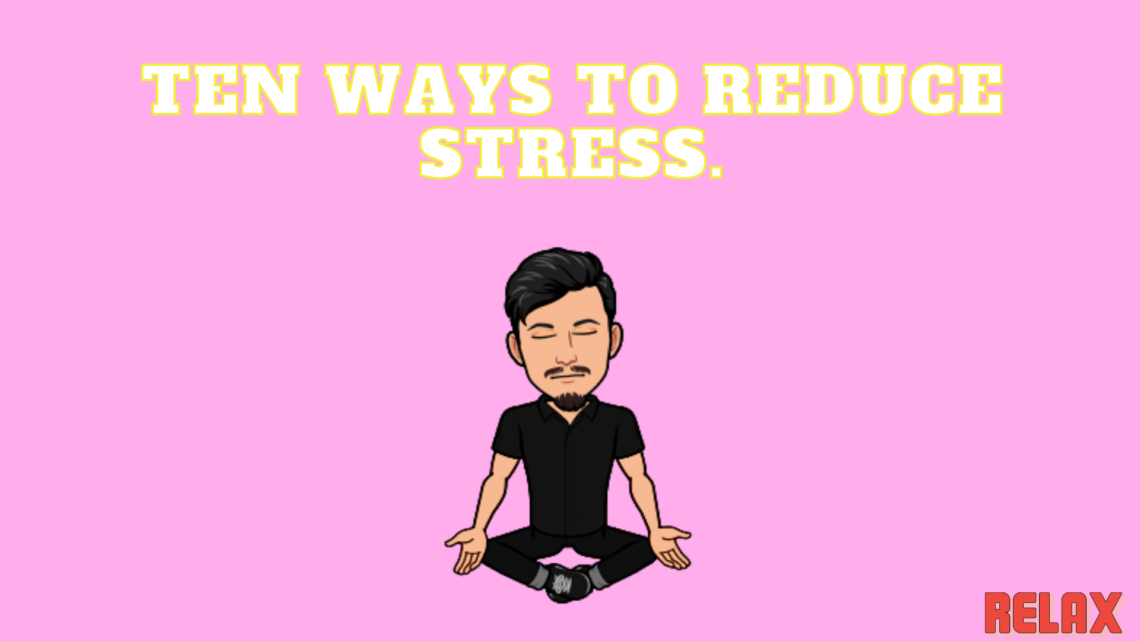
Ten Ways to Reduce Stress
How do you create a stress-free lifestyle? How do you reduce stress in some regions of your life? How to deal with highly stressful situations? How to cope with stress-induced anxiety and fear? What are a few helpful ways to reduce stress? If these are questions you are often googling answers for, We have listed out ten ways you can try to reduce stress. Here’s hoping at least one or some of them works for you.
1. Exercise
Studies have shown that regular exercise reduces stress significantly in people. Practising yoga or meditation lets you focus on your breath, consciousness and body, creating a stress-free lifestyle. Many lifestyles and health experts suggest physical activity like walking, swimming, running, or jogging to reduce stress. It is essential to notice how you feel after exercising or other physical activity to improve your stress handling.
2. Music
Every person relates to music differently. Our brain connects music with incidents or situations in our life. Listening to music in a stressful situation lets our brain calm and relaxes us. Music helps reduce cortisol levels and lower our heart rate. It releases endorphins and makes you feel relaxed.
Mental health treatments for conditions involving depression, anxiety and stress include listening to music. It sharpens focus or memory and puts you in a better mood.
3. Talk, Write, Read
Whenever you stress about anything, be it small or big, make sure you talk about it. Talking about your stress with your family or friends can reduce stress. Another way is to journal. Writing about causes of stress and identifying them can help you find ways to work towards reducing stress.
It is also advisable to note down what methods are working for you to reduce stress and refer to them later. Reading can distract you from stressful thoughts and make you feel relaxed. Reading articles, books, journals, and self-help tips or quotes can help reduce stress.
4. Break-Time
Excessive workload or burnout- are professionals’ leading causes of stress. Taking short breaks can help you manage or control pressure. It is essential to learn to manage your time efficiently. Sometimes overworking can trigger you. Whenever you feel triggered, take short breaks or even a vacation. Reduce or avoid things that trigger you. Plan your schedule and include timeouts and breaks for snacks or drinks or to talk a short walk.
5. Healthy Diet
Regular caffeine consumption might keep you awake during work hours, but it induces stress. Studies have shown that reducing caffeine intake, tobacco, or smoking can create a stress-free lifestyle. Having a healthy lifestyle helps you manage hormones efficiently. Overeating, stress-eating, or binge-watch eating can also increase stress.
Drink water regularly, and don’t dehydrate. High-fibre foods like nuts, fruits and vegetables can help control stress. Food high in vitamin C, citrus, and fibre also helps in reducing stress. Replace caffeine with black tea lowers stress hormone levels and makes you feel calm.
6. Self-Care
In a life full of hustle, it is essential and advisable to take a self-care day once a week or twice a month. Enjoy a warm bath, watch sunset or sunrise, and practice relaxation techniques like deep breathing or any other self-care routine that works for you.
Remember that skin, health, hair, and body care are also forms of self-care. Having a massage, visiting a park, connecting with nature, watching birds and doing little mundane things can take your mind off things you stress about in life. They also help you control your thoughts and be you for a moment.
7. Reduce Screen Time
It helps to watch movies or your favourite tv shows to distract and calm yourselves. Excessive screen time is unsuitable for stress control. Screen time can affect your mood and sleep pattern and increases cortisol levels. Many lifestyles and health experts suggest spending less screen time to balance the cortisol levels and gain a stable mood—the average screen time of an individual range from 7 to 9 hours.
The blue light can disrupt our sleep pattern; hence falling asleep becomes difficult. Before you sleep, stay away from screens, including your phones, for at least 2 hours. Don’t start your mornings by staring at the screen; instead, check in with your screens at least two hours after you wake up. It can reduce eye strain improve posture and physical activity, and increase focus.
8. Spend Quality Time
Be it with your friends, family or pets, make sure you spend quality time with them. Interacting with people and talking about things that bother you can make you feel light at heart, reducing stress. Play with pets, tease siblings, catch up with your friends or have a light conversation with your family members once in a while.
Check in with yourselves and notice how you feel. Whether planning a vacation together, making it on that trip, or sharing laughter for a few moments, spending quality time can help you control your stress hormones.
9. Work Management
Have a balancing schedule of work and life. Set boundaries and limit yourselves from overworking in terms of time and cost. Say no, when someone asks you favours which leads you to overwork. It is also essential to reduce procrastination to avoid stress at the last minute. Instead of procrastinating, try setting small achievable goals.
Don’t set high goals and expectations for you to reach in a limited time. Try dividing your work or project into small tasks and prioritising them accordingly. Use the Pomodoro technique and take breaks in between. Track your progress and identify areas where you can improve work efficiency while lowering stress levels.
10. Have Good Sleep
The human body follows a circadian rhythm that syncs with nature. Following the rhythm allows you to fall asleep quickly and deeply. Even short naps can reduce your stress. Hence it is crucial not to let anything disrupt your sleep cycle. Identify your sleeping patterns, and develop a sleep schedule.
Reduce screen time, alcohol, and heavy food and work at least two hours before you hit the mood. Spend time doing things that can make you fall asleep quickly or relax your body—reading, taking a walk or listening to music. Keep your bedroom cosy, comfortable, dark, and quiet. Use a good mattress and pillows.




